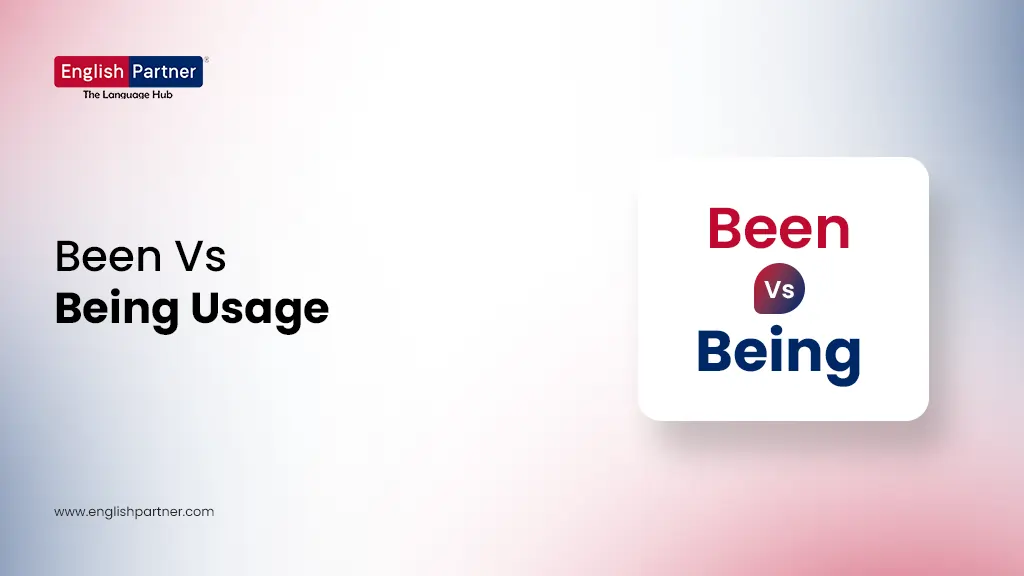For Big dreams, You don’t need big fees. Get 20% Off on all courses
| Grab 20% offer soon!
For Big dreams, You don’t need big fees. Get 20% Off on all courses
| Grab 20% offer soon!

Content Creator

The continuous form of the verb “to be” is “being.” It describes an action taking place or in progress when used in continuous (progressive) tenses.
Present Continuous Tense: It indicates an action that is happening right now.
This means that right now, I am taking care, or I am in the process of being careful.
“Been” refers to something that has already happened, typically used in perfect tenses.
“Being” refers to something happening or ongoing, typically used in continuous tenses.
He has been my friend for ten years.
(This indicates that being friends started in the past and continues to the present.)
I have never been to that restaurant. (The experience of going to the restaurant has never happened.)
Using “been” when you mean “being”:
Incorrect: “Why are you always been so quiet?”
Correct: “Why are you always being so quiet?”
Using “being” when you mean “been”:
Incorrect: I have being to the gym today.
Correct: I have been to the gym today.
| BEEN | BEING | |
| Meaning | Past Participle of ‘to be’ | Present participle of “to be” |
| Usage | Used in perfect tenses (present perfect, past perfect, future perfect) – Used in passive voice | Used in continuous tenses (present continuous, past continuous, future continuous) – Can function as a gerund (verb as a noun) Can function as an adjective |
| Example | I have been to Paris. (Present Perfect) The book has been read. (Passive Voice) | She is being kind. (Present Continuous – Being late is unacceptable. (Gerund) – The most important thing is being honest. (Adjective) |
Yashik is a dynamic content creator and persuasive copywriter who blends creativity with strategy. With a strong focus on audience engagement and digital impact, he crafts content that builds trust, drives traffic, and delivers results.

“Been” and “being” are both forms of the verb “to be,” but they have distinct grammatical functions.
* Been: Primarily used in perfect tenses (present perfect, past perfect, future perfect) and in the passive voice.
* Being: Primarily used in continuous tenses (present continuous, past continuous, future continuous), as a gerund (verb used as a noun), and sometimes as an adjective.
“I have been to the beach many times.” (Present Perfect)
“She is being very helpful today.” (Present Continuous)
“Been” is essential for forming the passive voice. For example: “The book has been read.” (Focus is on the book, not the reader.)
Yes, “being” can function as a gerund, which is a verb used as a noun. For example: “Being late is unacceptable.”